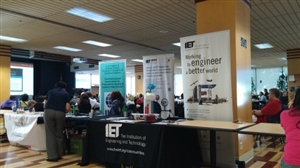In a recent press release, it says:
We’re here to unlock the creativity and drive of Britain’s next generation – the Passioneers – the designers and builders, problem solvers and innovators who will shape our future.
- Creating a beacon institution to help address the engineering skills shortage that threatens to hobble the UK’s ability to compete globally.
- With a new approach to learning – based on real-world problem solving and the blending of high quality engineering, design, liberal arts and humanities with communication and employability skills targeted at the growth sectors of the future.
- Located on a new and different type of campus – designed for inspiration, collaboration and a deep connection to the global community.
- And reinforced by an innovation ecosystem of global corporations & SME entrepreneurs, coupled with global universities, not just to invest, but to contribute knowledge and expertise – with New Model students at its centre.
Two things strike me as very different about this proposition:
- Its motto is “no lectures, no exams, no text books” (!). It plans to be very practically-based, largely conducted within real industry.
- It’s located in the city of Hereford (admittedly partly a personal one as a resident of Herefordshire for over 30 years).
The NMiTE project has been described (The Times 6th Sep 2016) as “at worst an intriguing experiment and at best an innovative template that traditional universities might learn from”.
What do you think?
As an aside, I have seen nothing of NMiTE in these forums or indeed on the IET website – yet, apparently (and quite rightly) the IET has been an advisor/contributor/supporter.
As a footnote, I would very much like to reach out and connect with any IET members/fellows that are/have been involved in NMiTE with a view of my getting involved too.


